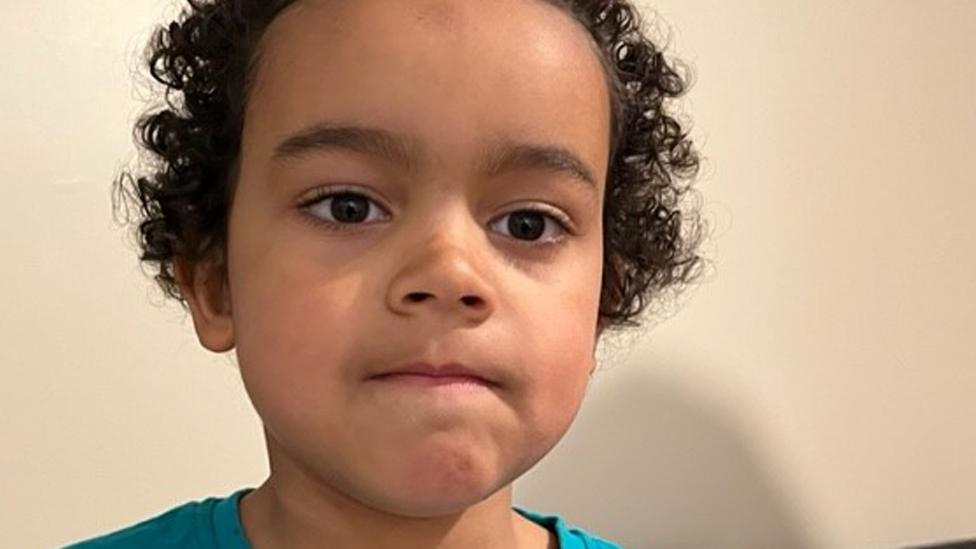Housing Benefit freeze leaves renters '£200 short' every month
- Published
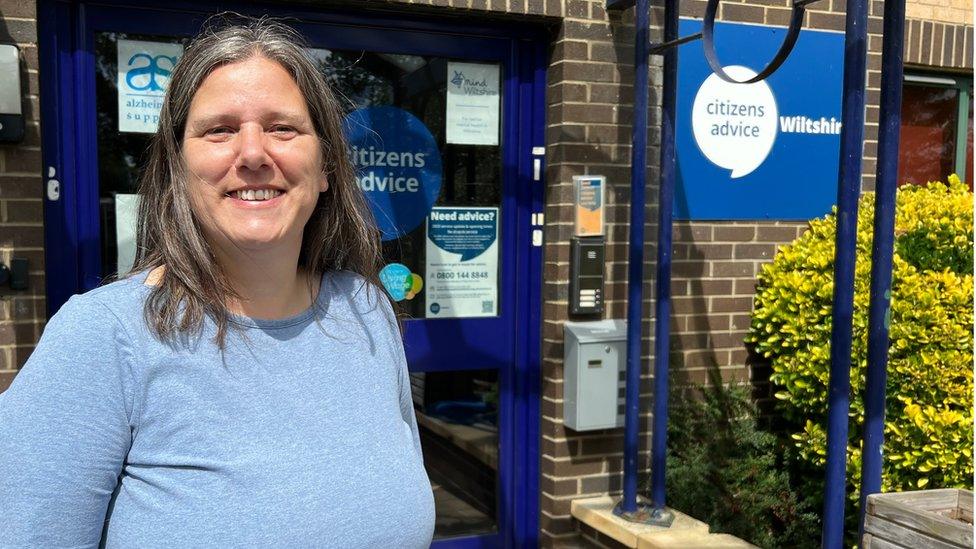
Claire Waltham-Smith said people are falling behind on rent, because benefits have been frozen.
Families on low incomes can no longer cover their rent with the housing benefit they are paid, according to a charity.
Housing advisors at Wiltshire Citizens Advice found "barely any" homes to rent that were covered by the benefit.
Claire Waltham-Smith, from Citizens Advice, said people were cutting out essentials to pay their rent, with some facing eviction.
The Government said it will spend £30bn on housing support this year.
Describing the situation, Ms Waltham-Smith said: "People go without energy or food, they are falling into rent arrears, they face eviction."
People living on low incomes often qualify for Universal Credit, which includes a housing element. This is based on the cost of housing where they live, called the Local Housing Allowance (LHA).
Since April 2020, the LHA has been frozen.
'Scouring rental websites'
But since then rents have risen over 20% nationwide. Latest figures show rents rose 5.3% in the last year alone.
At the Citizens Advice in Trowbridge, I watched Ms Waltham-Smith scour the rental websites, looking for a flat for a couple with a young child.
The mother has a low paid job, the father is ill and disabled.
Their LHA is £650 per month. The cheapest flat Ms Waltham-Smith could find was £850. Most were over £900.
"That leaves them with a shortfall of £200, £250 per month," she said.
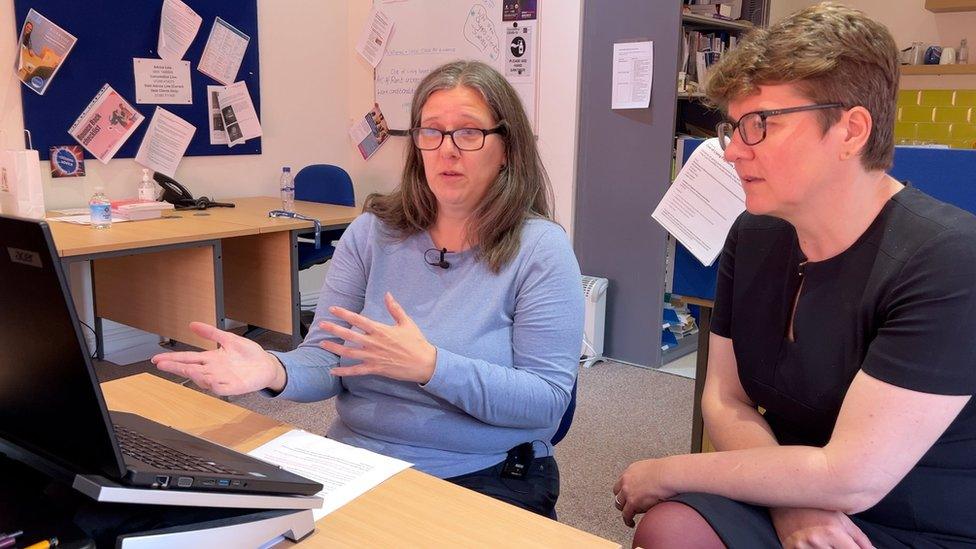
Citizens Advice teams could only find "one or two flats" covered by housing benefit
She added: "People on these incomes can't find that kind of money every month.
"They end up going without other essentials, or falling into rent arrears."
When her team surveyed private rental websites across Wiltshire, they found "barely any" that were covered by housing benefit.
"We found one or two one-bedroom flats in budget, nothing for families at all," Ms Waltham-Smith said.
'Makes no sense'
And it is not just happening in Wiltshire.
In North Somerset, the Citizens Advice team also reported not a single property available to rent for less than the benefit paid.
Economists at the Institute for Fiscal Studies, external have analysed data from across the UK.
They found that when the Local Housing Allowance was frozen in April 2020, it covered around a quarter (23%) of private rented properties.
By 2023, that had fallen to just one in 20 - about 5%.
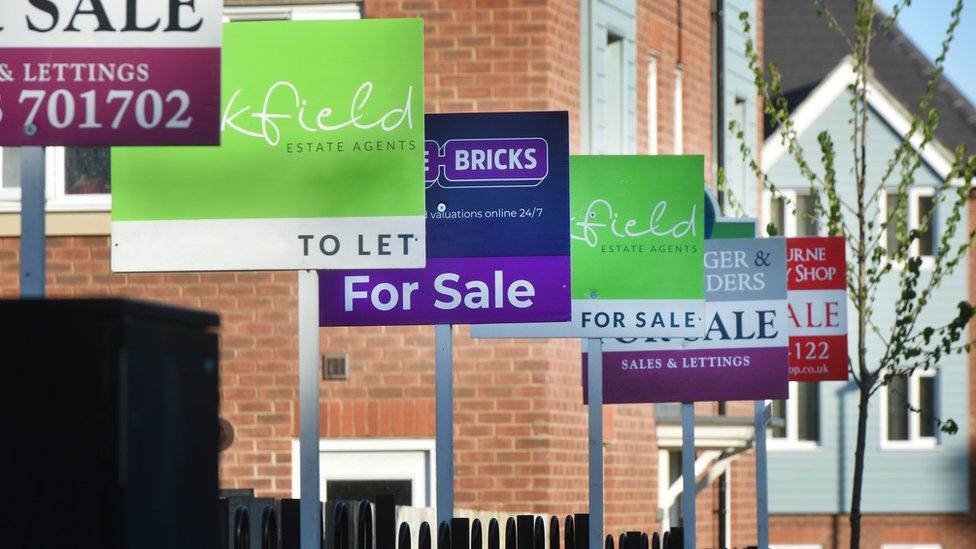
Only one in 20 homes for rent is covered by housing benefit, according to the Institute for Fiscal Studies
Tom Waters, who carried out the research, called it a "really big fall".
He pointed out that four in 10 private renters are receiving housing benefit.
"It does not make sense to have a system where the support you can get is frozen, and when rents go up, the cash support does not change," he said.
"There is no justification for that."
In February, a committee of MPs , externalfrom all parties called on the government to increase the Local Housing Allowance.
The MPs said: "The failure of Local Housing Allowance rates to keep pace with market rents is quite obviously making the private rented sector even less affordable for many people."
Billions spent on support
Local Housing Allowance is set by the Secretary of State for Work and Pensions, Mel Stride.
In November 2022, Mr Stride announced, external the LHA would continue at the level paid in 2020 for another year.
In other words it would remain frozen.
We asked the department why they have not increased the housing allowance, after rents increased by 20% since it was frozen.
Officials did not directly answer this question, but a spokesperson said: "We are set to spend over £30 billion on housing support this year, on top of significant cost of living help worth around £3,300 per household.
"On top of this we have raised benefits and the state pension in line with inflation and increased the National Living Wage as we bear down on inflation to help everyone's money go further."

Follow BBC West on Facebook, external, Twitter, external and Instagram, external. Send your story ideas to: bristol@bbc.co.uk , external
Related topics
- Published16 August 2023
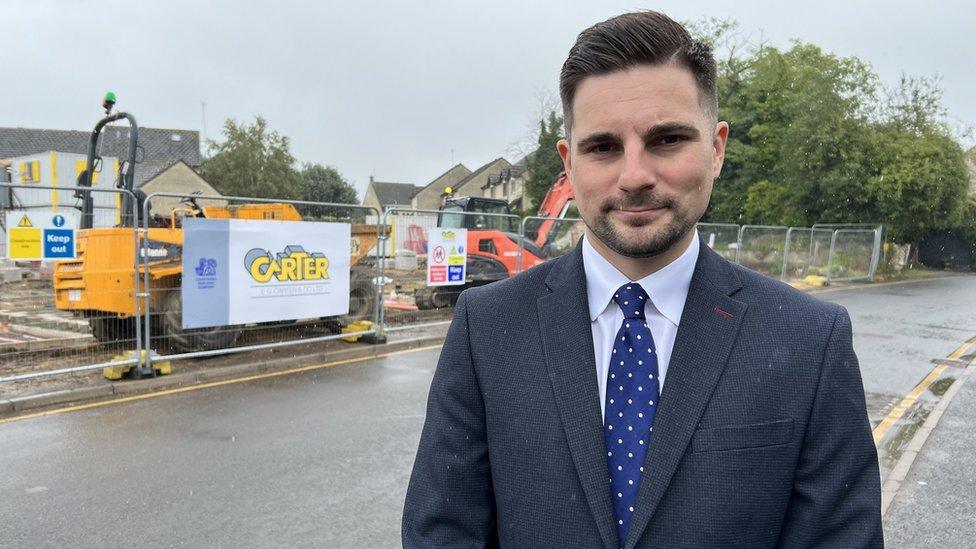
- Published25 July 2023
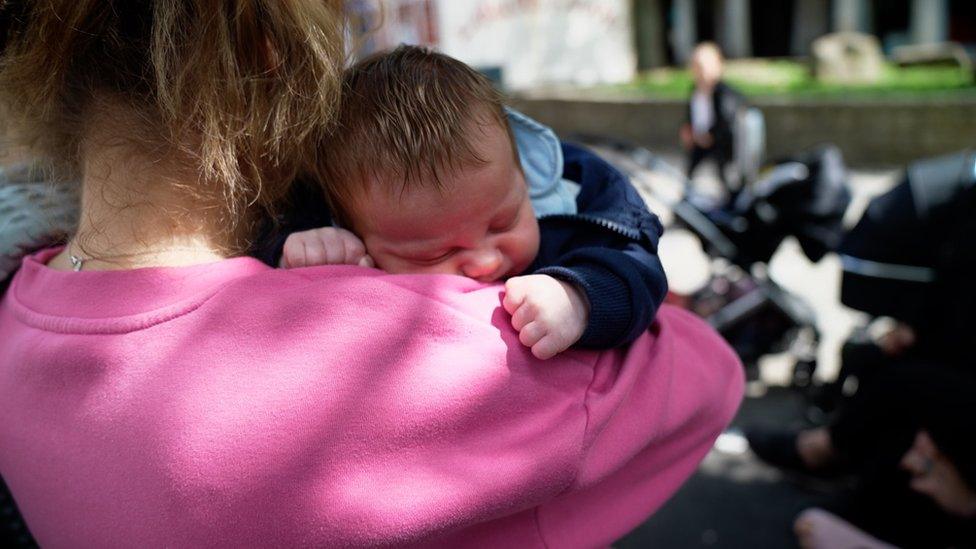
- Published11 March 2023
